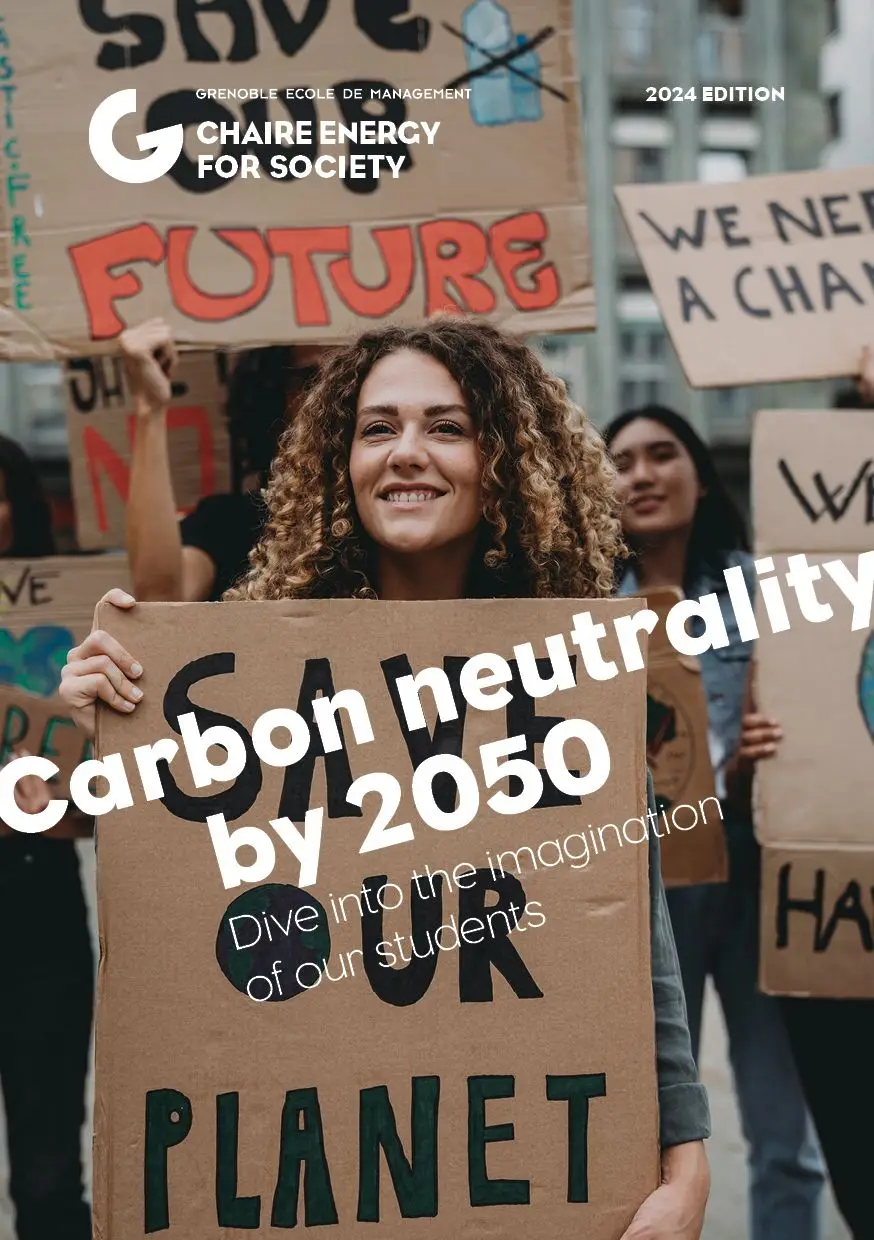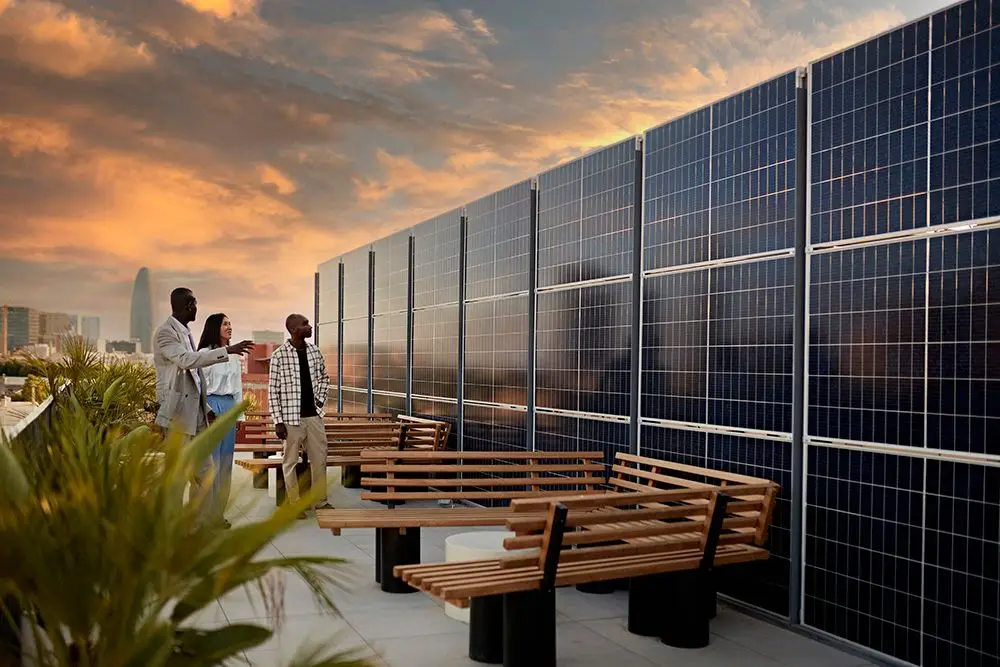GEMExpert – Carbon Neutrality in 2050 as envisioned by Grenoble Ecole de Management students
An interview with Carine Sebi, Chair of Energy for Society
Why ask management students to write a fiction essay?
The energy transition and climate challenges are complex, often contentious issues. Beyond simply imparting knowledge, this imaginative exercise encourages students to reflect, project themselves into the future, and question their lifestyles: tomorrow, they will be active players in the inevitable changes awaiting us.
In practice, since 2021, these essays have been part of the “International Contemporary Issues” course offered to third-year students in the Global Management track of the Bachelor in International Business and the “Technological and Social Innovation to Transform the Energy Sector” elective for second-year students in the Master in Management – Grande Ecole Program.
Do students engage with fiction writing?
Yes, with genuine commitment and engagement. However, each year’s output is influenced by the period in which it is produced. In the 2022 e-book, most stories were dystopian, emerging from the post-COVID phase, portraying a carbon-neutral society through a loss of freedoms. In the 2023 e-book, set against a backdrop of global energy crises, energy scarcity featured heavily in the narratives.
This year, two new themes have emerged: the importance of climate and energy access inequalities, and the limits of endless growth. Students are asking: what’s the point of working and producing more if it only worsens the planet’s condition?

Download the 2024 edition of the ebook Carbon Neutrality in 2050
How well-versed are students on climate issues?
They understand they will need to let go of certain comforts, but they hope these sacrifices will be shared equally to help strengthen social cohesion. However, their understanding of energy production and its scale remains somewhat naive. For example, they tend to focus on individual homes but overlook the optimization of large infrastructures.
We also observe cultural differences: some students from Asia or overseas are taken aback by discussions of “degrowth” or restrictions on air travel—these concepts simply aren’t prevalent in their home countries.
In the 2024 essays, what do carbon-neutral societies look like?
The societies can be situated along two perpendicular axes. The first is a utopia-dystopia axis, where a carbon-neutral society can range from “joyful freedom” to “dictatorship.” The second axis spans from hypersolutionism—where ever-more sophisticated technologies solve everything—to frugality, with a drastic lifestyle reevaluation.
Do you plan to use these stories in other forms?
Each year, we publish an e-book compiling the most remarkable essays. The 2024 collection has just been released online. Additionally, a GEM doctoral student is set to analyze the 300 existing essays and write an article for scientific publication.
Excerpts
Energy for Society Chair
The Energy for Society Chair studies the impact of new energy services that balance attractiveness, business value, and citizen buy-in. Current research focuses on public acceptance of new energy infrastructures such as wind power and biomethanation.
Other GEM programs on energy

▶MSc in Energy Business & Climate Strategy
▶MSc in Management for Sustainability Transitions
▶Advanced Master in Energy Transition Marketing and Management

